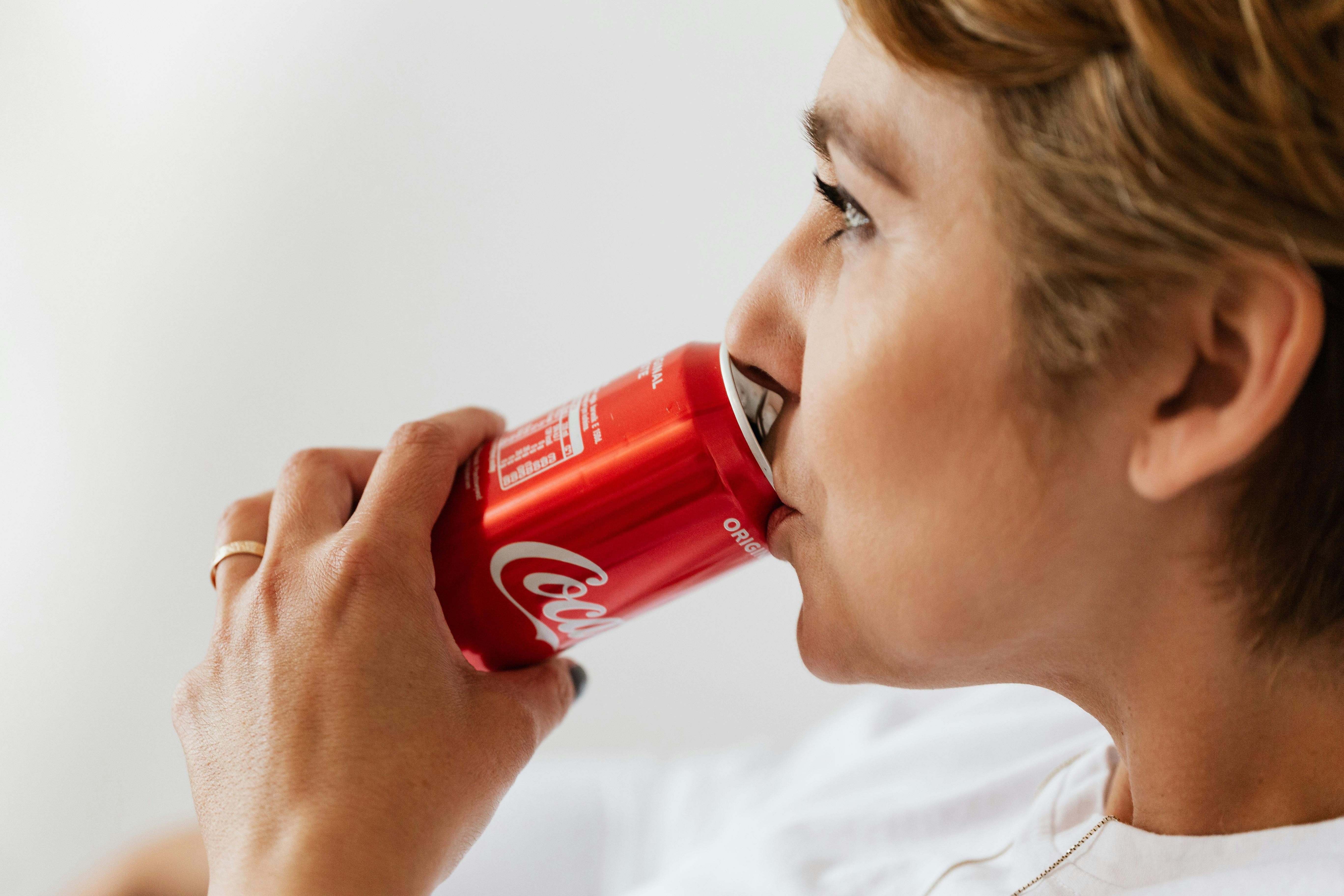Red Bull has been accused of false advertising in several countries, including the United States. This article will discuss the legal implications of suing Red Bull for false advertising. We will look at past cases and potential outcomes of a lawsuit against Red Bull. We will also discuss the legal process for filing a claim and what evidence you need to support your case. Finally, we will explore alternative dispute resolution options available to resolve disputes with Red Bull.Yes, you can sue Red Bull for false advertising. If you feel that the company has misled you with its advertising and marketing claims, then you may have grounds to file a lawsuit against them. To succeed in such a lawsuit, however, you would need to be able to prove that Red Bull misrepresented its product or service, that you relied on the misrepresentation in making your decision to purchase or use the product or service, and that the misrepresentation caused you some kind of harm.
What Is False Advertising?
False advertising is the intentional use of deceptive or misleading statements in order to promote a product or service. It is illegal in most countries, and companies that engage in false advertising can be sued and fined by regulatory bodies like the Federal Trade Commission in the United States. False advertising generally falls into two categories: making false claims and omitting important information.
Making false claims involves stating or implying that a product has certain traits or benefits that it does not have. Omitting important information involves leaving out key details about a product that could influence someone’s decision to purchase it. Both types of false advertising are unethical and can be harmful to consumers.
The consequences of false advertising can be serious for both companies and consumers. Companies that engage in false advertising may face fines, legal action, or damage to their reputation. Consumers may be misled into buying products they don’t need, pay too much for them, or suffer from health risks due to inadequate warnings about product ingredients or usage instructions. It is important for consumers to be aware of the dangers of false advertising so they can make informed decisions when shopping for products and services.
Who Can Sue Red Bull For False Advertising?
Anyone who purchased Red Bull under the impression that it would improve their performance or concentration, only to be disappointed by the product’s lack of efficacy, may be eligible to sue for false advertising. This applies to anyone who has purchased Red Bull since 2002, when a settlement was reached between the company and a class-action lawsuit that claimed Red Bull had misled consumers with its claims of enhanced athletic performance, mental alertness and concentration.
The lawsuit was brought against the company on behalf of consumers in California who had purchased Red Bull between 2002 and 2014. Those consumers are now eligible to receive either $10 in cash or $15 worth of free Red Bull products as part of the settlement. The settlement also requires Red Bull to remove any statements from its labels, websites or ads that suggest its beverages offer increased performance benefits beyond those provided by caffeine alone.
In addition to this class-action suit against Red Bull, other individuals may have cause to sue the company if they have been misled by false advertising claims regarding any of its products. If you believe you have been taken advantage of by false advertising from Red Bull, you should contact an experienced consumer protection lawyer who can assess your claim and advise you on how best to proceed.
Your lawyer will need details about your case, including information about when and where you saw the advertisement at issue as well as how it misled you into purchasing a product from Red Bull that did not live up to its advertised promises. Your lawyer will also advise you on what evidence is required in order for your case to be successful. Depending on the severity of the false advertising claims made by Red Bull, some people may even be eligible for punitive damages in addition to any compensation they may receive for their losses resulting from being misled by false advertising.
Legal remedies against Red Bull
The use of the energy drink Red Bull has been subject to a number of legal actions in recent years. Consumers in some countries have brought claims against the company for false advertising, misleading labeling, and deceptive marketing practices. In response to these claims, Red Bull has been subject to legal action in some countries, including the United States where it was required to pay millions of dollars in a settlement.
In the United States, consumers may bring a claim against Red Bull for deceptive trade practices or false advertising under state or federal statutes. These claims include allegations that the company misled consumers about its health benefits, misrepresented its ingredients and failed to disclose important information about its product. Consumers may also bring a claim against Red Bull under consumer protection laws if they purchased the energy drink without proper disclosure of its ingredients or effects.
Consumers may also bring a claim against Red Bull for breach of contract if they did not receive what was promised by the company’s advertising or labeling. Additionally, consumers may bring a claim for unjust enrichment if they purchased Red Bull believing it had certain health benefits that were not true.
Red Bull is also subject to legal action in other countries for similar reasons as those listed above. In some cases, there have been class action lawsuits brought against the company by consumers who have suffered harm as a result of using their product. Additionally, governments in some countries have imposed fines on Red Bull for violating local consumer protection laws or engaging in deceptive marketing practices.
Overall, there are many possible legal remedies available to consumers who feel that they have been wronged by Red Bull’s marketing and labeling practices. Depending on the country and circumstances involved, these remedies can range from an informal settlement with the company to filing a lawsuit against them seeking damages or an injunction blocking them from using certain marketing practices.
The Federal Trade Commission’s Role In False Advertising Suits
The Federal Trade Commission (FTC) is a federal agency that has the authority to investigate and take legal action against false advertising. The FTC enforces the provisions of the Federal Trade Commission Act (FTCA), which prohibits deceptive and unfair practices in advertising and marketing. The FTC also works with other government agencies, state attorneys general, and private organizations to protect consumers from false or misleading advertising.
The FTC’s primary role in false advertising suits is to investigate and determine whether an advertisement is false or misleading. If an investigation reveals that an advertisement is deceptive or unfair, the FTC can take enforcement action against the company responsible for it. This could include an order requiring the company to stop engaging in the deceptive practice and providing refunds or other remedies for consumers who have been harmed by it.
The FTC also has a range of tools available to stop deceptive practices before they cause harm to consumers. These include warning letters, public education campaigns, consumer alerts, voluntary industry standards, enforcement actions against individual businesses, and rules that establish industry-wide standards of truthfulness in advertising.
In addition, the FTC works with state attorneys general to enforce laws prohibiting false advertising in their states. The FTC also participates with other government agencies in developing and enforcing laws that protect consumers from deceptive practices by companies operating across state lines or on the Internet.
Finally, the FTC works with private organizations such as consumer protection groups to educate consumers about their rights when dealing with companies that engage in false advertising. These organizations help spread awareness of scams and other deceptive business practices so that consumers can protect themselves from becoming victims of fraud or other types of harm caused by false advertising.
Overall, the Federal Trade Commission plays an important role in protecting consumers from potentially harmful false advertising practices by investigating cases of deception and taking legal action against companies responsible for it

Overview of Red Bull False Advertising Lawsuit
A private lawsuit against Red Bull for false advertising can be based on the elements of fraud, misrepresentation, breach of express or implied warranty, and/or unjust enrichment. These elements require that the plaintiff show that Red Bull made false claims about its product, that the plaintiff relied upon those claims and suffered a loss as a result. Additionally, the plaintiff must show that they were harmed by the false advertising and seek damages from Red Bull in order to be successful in their lawsuit.
Elements of Fraud
The first element of a private lawsuit against Red Bull for false advertising is fraud. To prove fraud, it must be shown that Red Bull knowingly or recklessly made false representations about its product. A plaintiff must also show that they relied upon the false representations and suffered a loss as a result. Additionally, it must be shown that Red Bull acted with intent to deceive or with reckless disregard for the truth when making their statements.
Misrepresentation
The second element of a private lawsuit against Red Bull for false advertising is misrepresentation. Misrepresentation requires that a plaintiff show that there was an untrue statement made by Red Bull about their product which induced them to enter into an agreement with them. The plaintiff must also show that they suffered damages as a result of relying on this misrepresentation.
Breach Of Express or Implied Warranty
The third element of a private lawsuit against Red Bull for false advertising is breach of express or implied warranty. This involves showing that there was an agreement between the parties where one party promised something which was not fulfilled. The plaintiff must also show that they suffered damages as a result of this breach.
Unjust Enrichment
The fourth element of a private lawsuit against Red Bull for false advertising is unjust enrichment. This requires showing that Red Bull received something from the plaintiff which should not have been given under the circumstances. The plaintiff must also show that they were harmed financially as a result of this enrichment.
What Is The Statute Of Limitations For Suing Red Bull For False Advertising?
The statute of limitations for suing Red Bull for false advertising can vary depending on the state. Generally speaking, the statute of limitations is two to four years from the date of the false advertising or when it was first discovered, whichever is later. However, it is important to note that some states have a shorter or longer time frame and may also have exceptions. It is best to consult an experienced attorney in your state to determine the exact statute of limitations for your case.
In most cases, a consumer must file a claim within their state’s statute of limitations in order to take legal action against a company for false advertising. If a consumer fails to do so, they may be unable to recover any damages from Red Bull for deceptive practices. Additionally, some states require consumers to provide written notice of their claims prior to filing in court. The notice requirements vary by state and should be discussed with an attorney prior to taking legal action against Red Bull.
It’s also important to remember that filing a lawsuit against Red Bull involves more than simply meeting the applicable statute of limitations—it requires establishing that Red Bull engaged in deceptive advertising practices and that those practices caused harm or injury in some way. This can be difficult, as companies are often very careful about how they advertise their products and services. Consulting with an experienced attorney can help ensure that you have sufficient evidence needed to prove your case and maximize any potential damages you may receive as a result of your lawsuit.
Overall, if you believe that you have been harmed by false advertising from Red Bull, it’s important to act quickly and consult with an experienced attorney before the applicable statute of limitations runs out so you can receive any compensation you may be owed.
Proving False Advertising by Red Bull
False advertising by a company is a serious accusation, and one that needs to be backed up with evidence. In the case of Red Bull, there have been numerous claims by individuals and organizations that the company has engaged in false advertising, with some of these claims being backed up with hard evidence. In order to prove that Red Bull has engaged in false advertising, it is necessary to consider the types of claims they have made and the evidence that supports them.
The most common type of false advertising claim made against Red Bull is one involving their slogan “Red Bull Gives You Wings”. This claim implies that drinking Red Bull will give you more energy and make you feel better, however there is no scientific evidence to support this statement. In fact, studies have shown that consuming large amounts of caffeine can be dangerous for your health, making it clear that this slogan could potentially be considered as false advertising.
Other types of false advertising accusations against Red Bull include claims concerning its ingredients. For example, it was recently revealed that certain batches of the drink contained traces of a banned substance known as D-ribose which can cause serious health problems when consumed in large quantities. This was not disclosed on any packaging or promotional material associated with the product and thus could be seen as an example of false advertising by Red Bull.
Finally, another type of accusation against Red Bull involves its marketing campaigns which have often been considered misleading or deceptive. For example, many have argued that the company’s use of extreme sports imagery implies that consuming their products will make you a better athlete even though there is no scientific evidence to support this statement either.
In conclusion, there are various forms of evidence which suggest that Red Bull has engaged in false advertising over the years. From using slogans which imply effects which cannot be proven scientifically to failing to disclose certain ingredients on packaging materials and using misleading marketing campaigns – all these factors point towards a potential case for false advertising on behalf of the company.

Conclusion
It can be concluded that it is possible to sue Red Bull for false advertising. The company has been known to make false claims about their products and the potential health benefits they offer. Consumers have the right to seek compensation if they feel that they were misled by Red Bull’s claims.
When filing a lawsuit against Red Bull, it is important to have evidence of the false advertisement and any damages suffered as a result of the deception. Additionally, consumers must be aware of their state’s laws regarding consumer protection and deceptive advertising in order to ensure that their case will be successful.
Overall, Red Bull needs to be held accountable for false advertising and consumers must take action if they feel that they have been misled by the company’s claims. Taking legal action against them may be necessary in order to protect consumers from being taken advantage of in the future.

Recent Comments